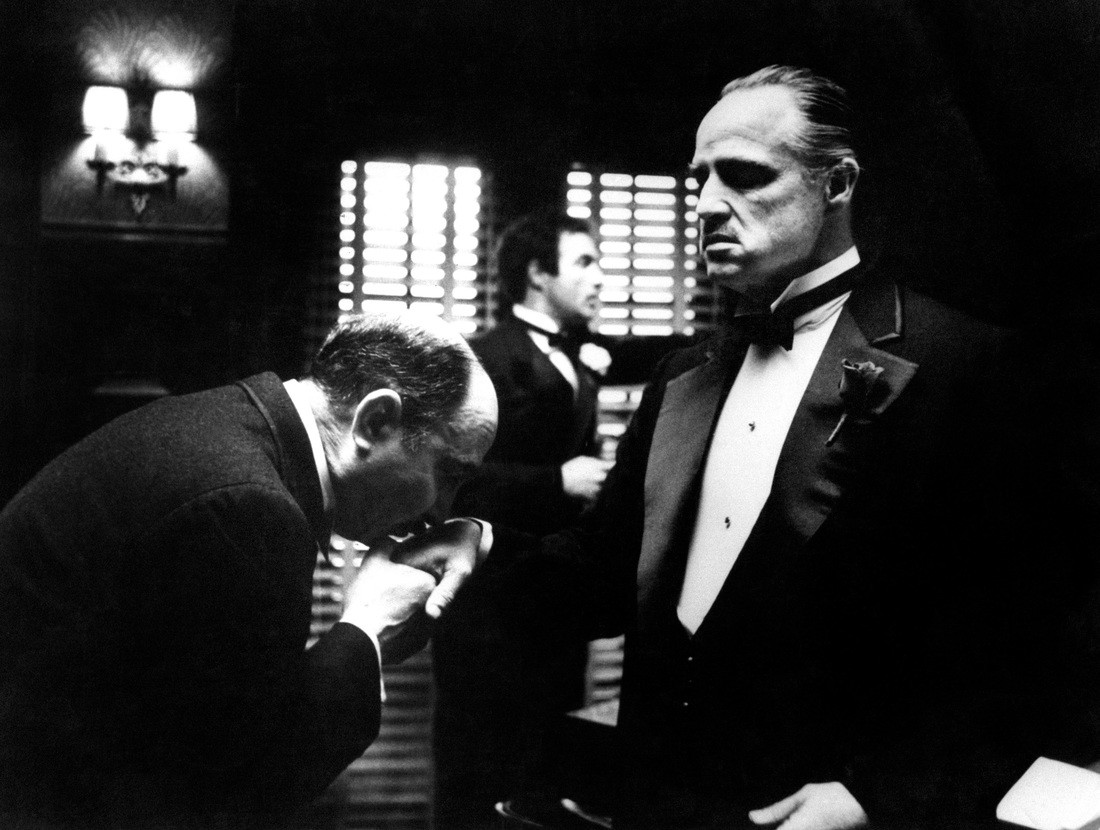
Hiring Mistakes 4 – Disrespect Candidates
The fourth installment in a series of short articles addressing common mistakes in executive hiring. Click this link: Forgetting The “Why” for part 1.
- Forgetting The “Why”
- Hiring For The Wrong Reason
- Seduced by Beauty
- Selection By Committee
- Limited Buy-In
- Disrespect Candidates
- Dishonesty: Half-Truths & Blatant Lies
- Money, Money, Money
- Failing to Prepare For Smooth On-boarding
Disrespect Candidates
In my introduction to this series on common hiring mistakes, I presented the following caveat: “these articles address executive hires. The discussions are directed specifically at situations where a firm seeks to hire an individual with a relevant track record to address a specific business challenge. The number of suitable candidates for these roles are often limited to single or low double digits and these candidates are, almost always, gainfully employed elsewhere.” That caveat is especially true here.
Over the years, I have observed many clients (only a minority, thankfully) adopt a Lord of The Manor persona during a hiring process, taking themselves on a power trip throughout the exercise. With candidates coming into their offices to interview for a job working in their firm, they seem to believe that they hold the fates of these individuals in their palms and attempt to lord it over them. This manifests in a number of ways, including but not limited to:
- Turning up intentionally late to meetings and keeping the candidates waiting
- Running interviews like quizzes rather than two-way conversations
- Giving deliberately vague answers to questions about the business
- Providing little or no post-interview feedback
- Low-balling on compensation packages
For these hiring managers, the main point of the hiring process is to (re)emphasise their place in the company’s hierarchy. The “why” becomes only a secondary consideration.
It should be obvious how wrong this approach is but I will expound on this all the same.
You hire an executive because you have a problem – or challenge, if you prefer – that needs addressing and can’t be addressed by anyone currently employed within the organisation. You pay this individual a competitive salary in exchange for their efforts to help solve your problem. Your hiring decision is not an act of charity whether you run (or belong to) a private company, a listed entity, a public sector body or, oddly enough, a charitable organisation. You are not doing them a favour.
Your organisation may possess a more prestigious brand than their current employer’s; your firm might be the market leader while theirs is a small fish; the role you are hiring for may represent a step up in title, in responsibility or in pay; you may have heard on the grapevine that their company might soon be up for sale. Whatever the case may be, by meeting them and contemplating hiring them, you are not conducting some act of largesse. I repeat, you are not doing them a favour. When you extend an offer of employment, you are preparing to enter into a professional agreement with a Professional. Treating them with professional respect is not just good manners, it is Good Business.
On my very first day as a head-hunter, I met John Davison-White, one of the best teachers I’ve ever had. JDW delivered the 2-week training and induction programme at the firm where my career began. I have never forgotten the first two pieces of information he imparted to the 14 people sat in rapt attention that January morning 19 years back:
- “Just in case any of you have any misconceptions, this is a Sales job!”
- “You are selling the only product that will turn around and say to you “No! I don’t want to be sold to that buyer or I don’t want to be sold at that price”
Point 2 is an important one for any hiring manager or hiring team to remember. No matter how fantastic you believe your company is, how great a career opportunity you believe you are offering, how unhappy you think the candidate is at their current firm, they can still turn around and say “thank you very much but I’ll stay where I am.” When candidates have reservations about accepting job offers, I advise them to think of the whole interview process as a courtship exercise. During courtship, both parties tend to be on their best behaviour, displaying the attributes and personality traits that they believe are their most attractive or endearing. As a rule of thumb, do not expect your courter’s behaviour to improve after your union. If anything, expect them to be less attentive to your wants and desires once you are “theirs”. If the behaviour they display during courtship troubles you, it is probably wise to turn them down – as the saying goes, “don’t marry a man and expect to change him”.
The way you treat candidates during the interview process is indicative of your personal work style or, just as significantly, your company’s culture. If disrespecting candidates is your modus operandi, then don’t expect the best ones to join you. The more disrespectful you are, the more likely it is that you can only hire candidates who are extremely naïve or extremely desperate. The former will likely leave your firm (or your team) as soon as the scales fall from their eyes. The latter will stay but you might discover that their eagerness to join you was more an eagerness to escape their previous firm before the extent of their incompetence was discovered – they jumped before they were pushed. (Also, if you work in a small industry, it won’t take long for word of your high-handedness to do the rounds which will make it that much harder for you and your firm to attract quality candidates in future.)
This is an issue that a firm / hiring manager needs to be cognisant of at every candidate touch-point in the process. In the mid-noughties, I placed a third-year banker (Mr. X) into the FICC division at Goldman Sachs, a firm that excels at attracting top talent through the power of its brand and the thoroughness of its process. Yet, during this particular hire I experienced a disappointing example of candidate disrespect right at the very end of the whole process…
Mr. X worked for what was considered a Tier 2 European Investment Bank and though relatively junior, had been heavily involved in the creation of two of the biggest product innovations in the credit markets at the time. I introduced Mr. X to a Goldman Managing Director in London whose post-interview feedback was, “He definitely belongs here but we don’t have anything for him right now. We’ll keep him in mind if any openings come up, but make sure you let me know if he gets any other job offers.” Months later, said MD called asking if Mr. X could meet a colleague in town from the New York head office. This colleague worked in one of the most profitable groups in the bank, was tasked with expanding the product offering to institutional clients in Europe and needed a Number Two who understood the products and had existing relationships with the target client base. Mr. X was ideal, as the only other London-based candidates who met the criteria had several years more experience and would be 2 – 5 times more expensive. After an in-depth interview process including two days of grilling in New York, Mr. X was offered the job. The offer was extended to me via a member of the in-house recruitment team in London who had not been involved in any of the discussions prior. The offer was disappointing on two key points: it came with a lesser job title than Mr. X had requested and it made no mention of a guaranteed bonus for the following January (in pre-credit crunch times, City of London investment bankers earned the bulk of their annual pay via their end of year bonus and the accepted norm was that new employment contracts included a guaranteed minimum sum for the next bonus round). I informed the inhouse recruiter that I would manage Mr. X’s disappointment about the title but when I sought an explanation as to the absence of a bonus guarantee, I wasn’t given one. “Why would he join without a guarantee?” I asked.
“Because we’re Goldman.”
Essentially, I was to tell a professional in his mid-20s to forgo a bonus worth twice his basic salary in exchange for a nicer business card. Mr. X understandably, was livid. The hiring manager wasn’t terribly impressed either, knowing just how crucial this hire was to the European mandate. The hiring manager and the Partner in charge of the group were able to reassure Mr. X that, while their particular department never offered guarantees, every team member that delivered was handsomely rewarded.
At the time, I found the behaviour of the in-house recruiter exasperating but was so focused on rescuing the process, that only now, 14 years later, am I stopping to question why a recruitment professional would respond in that manner. Maybe it was a terribly busy day and Mr. X’s was the least significant (in their mind) of all the job offers they were tasked with closing. Perhaps they’d been given no information on this by New York and were unwilling to admit to being kept out of the loop. Maybe, as I assumed back then, they couldn’t believe the temerity of a junior banker from a 2nd Tier European bank to demand a bonus guarantee from GS. Or it could be that I, the head-hunter, rubbed them the wrong way. Whatever the reason, those three words, flippantly delivered, came close to derailing the plans to build a revenue pipeline that would go on to deliver tens of millions of dollars for the bank inside of two years.
Remember:
You are NOT doing candidates a favour
You are a professional. So act professionally
The Hiring Process is a Courtship. Open doors and pull up chairs
Next time, Dishonesty: Half-truths & Blatant Lies

Sorry, the comment form is closed at this time.